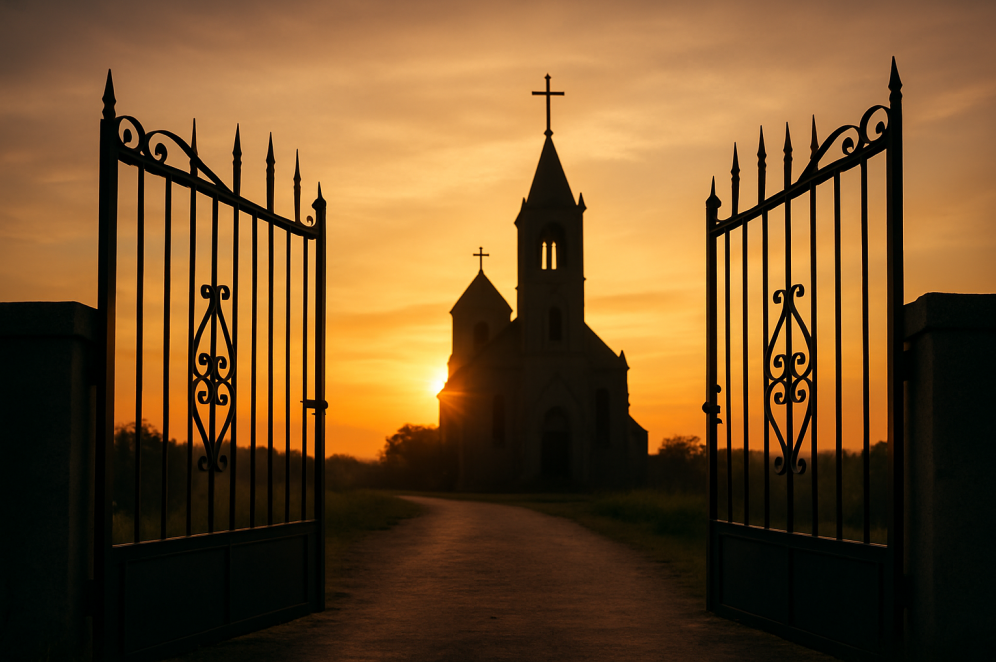
Is it un-Christian to want secure borders?
Or wrong to welcome migrants in need?
Some voices shout “open borders!” Others cry “build the wall!” But the Catholic Church doesn’t take its marching orders from political slogans. It offers something deeper: moral clarity grounded in Scripture, Tradition, and reason.
The Church calls for balance—a just government protects its citizens, but a just people never turns its back on the vulnerable. It’s not about choosing sides. It’s about seeing both truth and mercy through the eyes of Christ.
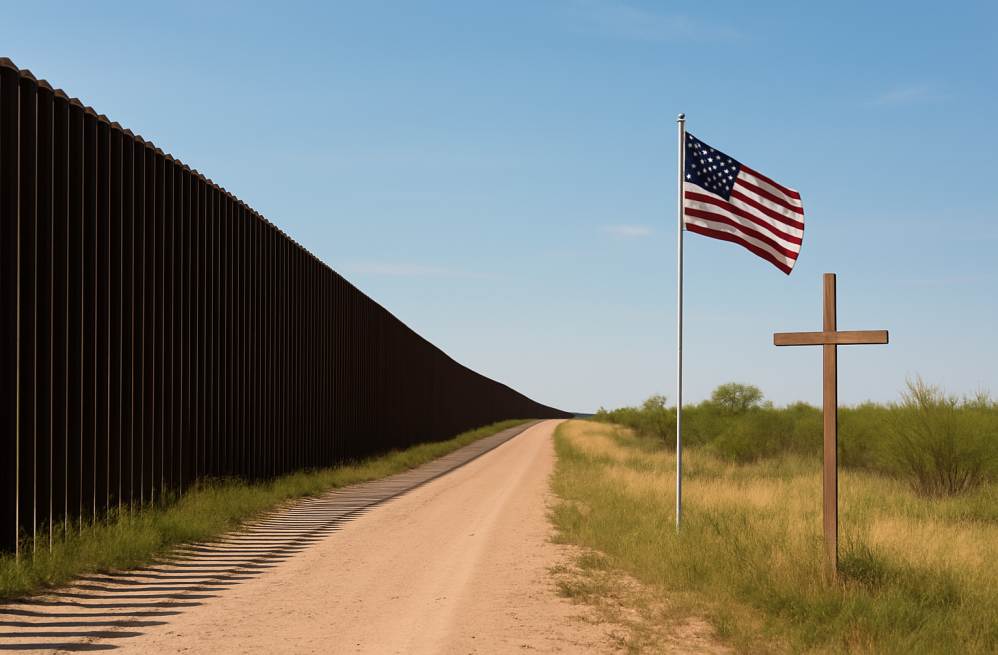
🛡 Nations Have a Right—and Duty—to Secure Borders
Catholic teaching begins by affirming the legitimate right of every nation to defend its sovereignty and maintain public order.
The Catechism of the Catholic Church (CCC 2241) teaches that public authorities may regulate immigration for the sake of the common good. This includes setting fair conditions for entry and ensuring the nation can meet the needs of both citizens and newcomers.
St. Paul reinforces this in Romans 13:1–7, where he calls civil authorities “servants of God” who bear the sword to uphold justice. In other words, governments don’t just have permission—they have a responsibility to ensure law and order, including at their borders.
So yes, the Church teaches that border enforcement is not only allowed—it is often necessary. But that’s not where the conversation ends.
🚪 The Right to Migrate—Especially When Life Is at Stake
Human dignity is not bound by geography. Every person, made in the image of God, has the right to seek a life that respects that dignity.
That’s why the Church affirms a natural right to migrate—particularly when someone is fleeing war, persecution, or unlivable poverty.
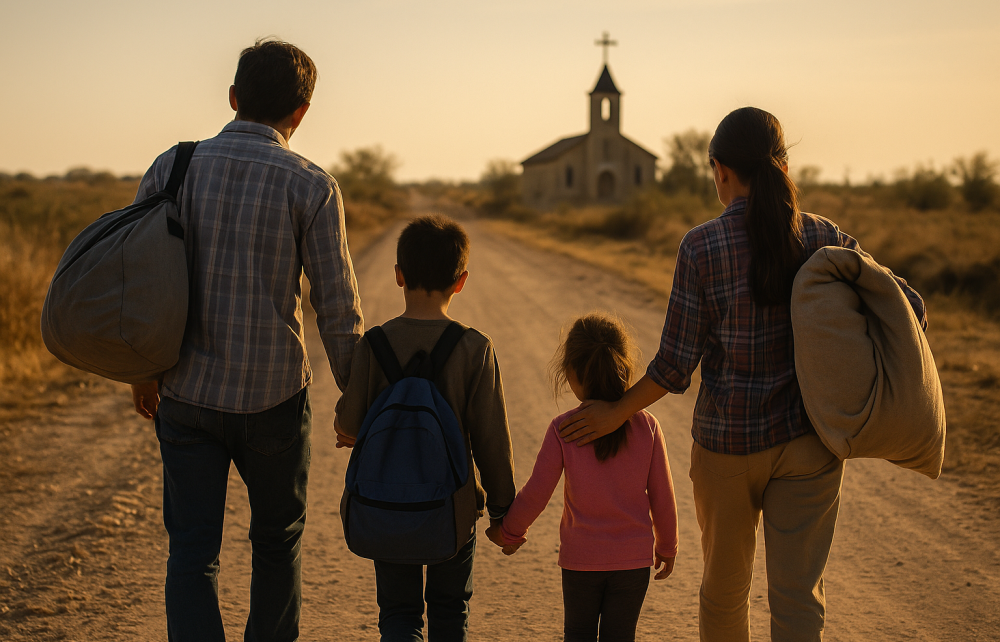
Jesus said, “I was a stranger and you welcomed me” (Matthew 25:35). He didn’t say, “unless they didn’t have a visa.” Pope Pius XII codified this principle in his landmark 1952 document Exsul Familia, written in response to the refugee crises after World War II. He called migration a fundamental human right when basic survival is at risk.
The message has been echoed repeatedly by Pope Benedict XVI, Pope Francis, and bishops around the world. For Catholics, seeing Christ in the migrant is not optional—it’s a Gospel command.
⚖️ Prudence Must Guide Policy—but So Must Charity
Let’s be clear: the Church does not call for reckless or unlimited migration.
The Catechism reminds us that governments must act prudently. If a country cannot provide jobs, shelter, or social stability for an influx of newcomers, it has the right—indeed, the duty—to manage migration flow in a way that ensures stability for all.
But here’s the key: prudence must never become prejudice.
Fear-based policies, racial profiling, and scapegoating immigrants are incompatible with Catholic moral teaching. Saint John Paul II called such attitudes “sins against solidarity.” Pope Francis warns that indifference to suffering at the border is a “globalization of indifference.”
The Church insists on what Pope Benedict XVI called a “culture of welcome” rooted in both justice and charity.
🙋 Migrants Also Have Moral Duties
Just as nations have responsibilities, so do migrants. Catholic teaching is not one-sided.

According to CCC 2241, immigrants are morally obligated to:
- Obey the laws of the country that welcomes them.
- Respect its culture and institutions.
- Work for the common good by contributing to society.
Integration is not a free ride—it’s a mutual effort. Rights come with responsibilities, and successful immigration depends on both sides fulfilling their role with honesty and goodwill.
🌱 Integration Over Assimilation
The Church draws a helpful distinction here.
Assimilation often implies erasing one’s identity to “fit in.” But integration respects the cultural heritage of migrants while helping them participate fully in society.
This benefits everyone. Think of the Church in America—enriched by waves of Irish, Polish, Mexican, Vietnamese, and Filipino Catholics. That’s not assimilation—it’s the Body of Christ growing stronger through diversity.
Pope Francis describes the Church’s mission to migrants in four powerful words:
Welcome. Protect. Promote. Integrate.
Those aren’t just nice ideas—they’re the shape of love in action.
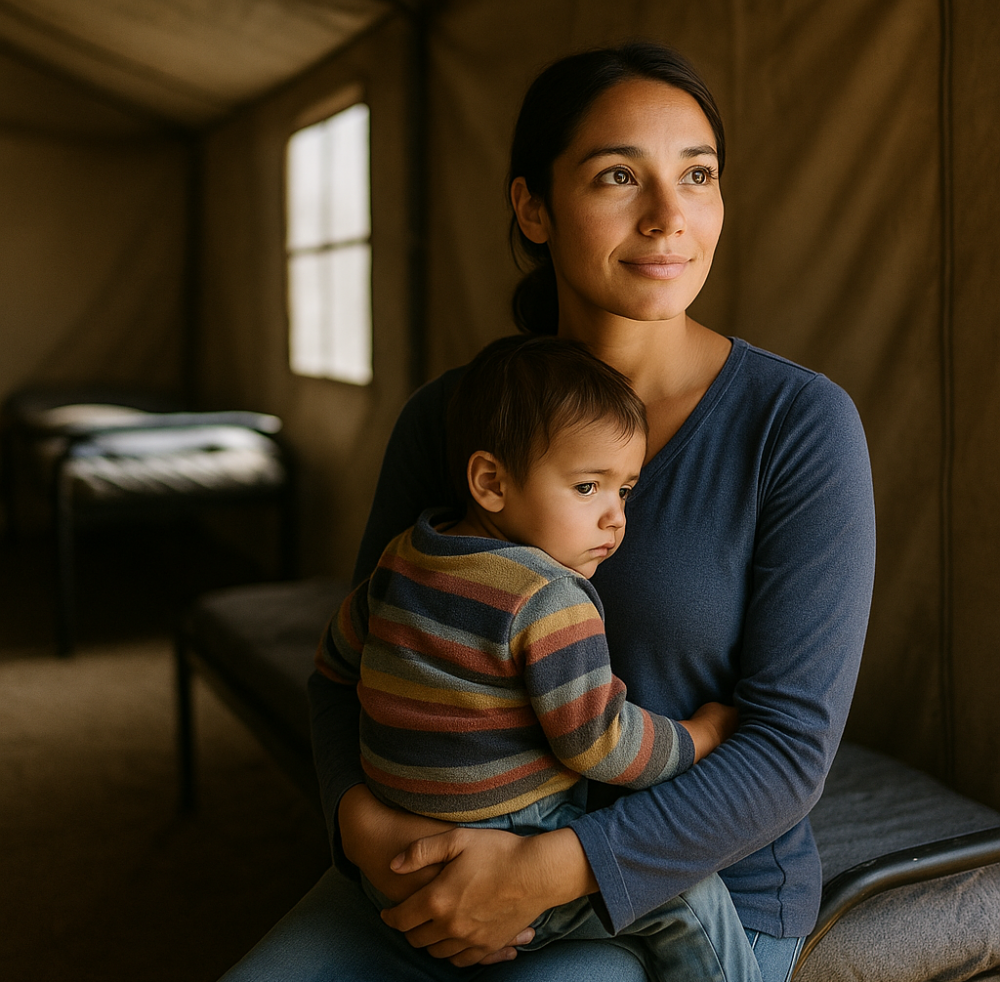
🆘 Refugees Deserve Priority
Here’s where urgency enters the picture.
Not every migrant is a refugee. But those fleeing persecution, war, or credible danger must be treated with particular concern and priority.
The 1951 Refugee Convention (to which the Holy See is a signatory) and Catholic teaching both affirm this principle. Turning away people fleeing death or torture is not immigration policy—it’s a moral failure.
The Church reminds nations that compassion and courage are not in conflict. When we protect the vulnerable, we reflect the heart of Christ.
🌍 Addressing the Root Causes of Migration
Border walls may slow down migration—but they don’t solve its cause.
The Church teaches that wealthier nations have a moral duty to help improve conditions in developing countries. This includes fair trade, economic aid, debt relief, and peacebuilding efforts.
If people can live with dignity and hope in their own country, forced migration will decline. That’s real justice. Not just managing symptoms—but healing the wound.
Pope Francis calls this the work of “integral human development.” It’s the long game—but it’s the one that builds peace.
🧾 In Summary
Let’s boil it down:
- ✅ Nations can secure borders—but must do so with justice.
- ✅ Migrants can seek a better life—but must do so lawfully.
- ✅ Refugees deserve protection—not political games.
- ✅ Prudence is required—but fear is not a virtue.
- ✅ Immigrants must integrate—not disappear.
- ✅ Wealthy nations must help root out the causes of forced migration.
Catholic teaching on immigration isn’t a political platform—it’s a moral framework rooted in human dignity and divine love. It calls us to protect what is good, serve those in need, and always act with compassion and truth.
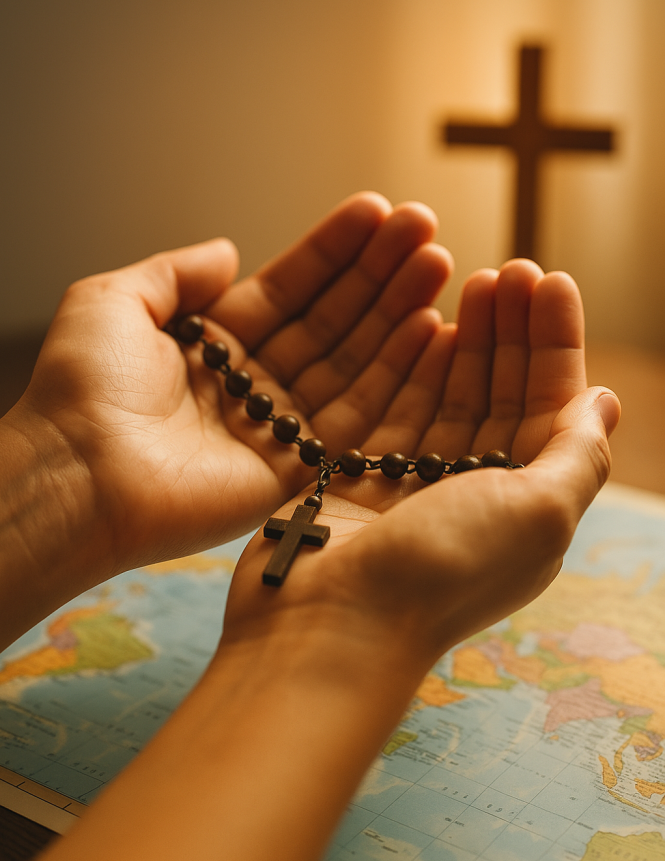
📚 Want to Go Deeper?
These four key sources are worth reading:
*This post contains affiliate links. If you make a purchase through these links, I may earn a commission at no extra cost to you. As an Amazon Associate I earn from qualifying purchases.
- Catechism of the Catholic Church, §2241 – Explains both national and migrant duties.
- Exsul Familia (Pius XII) – The foundation of modern Catholic migration thought.
- Caritas in Veritate (Benedict XVI) – Focuses on global solidarity and justice.
- Fratelli Tutti (Francis) – Explores universal fraternity and border ethics.
- Brothers and Sisters in Christ: A Catholic Teaching on the Issue of Immigration (A Catholic Bishop Teaches) Paperback
- Catholic Toolbox – Faith Resources, Books and Devotional Tools
✝️ Whether you’re voting, advocating, or simply thinking it through—start with the Gospel.
“Whatever you did for one of the least of these… you did for Me.” (Matthew 25:40)
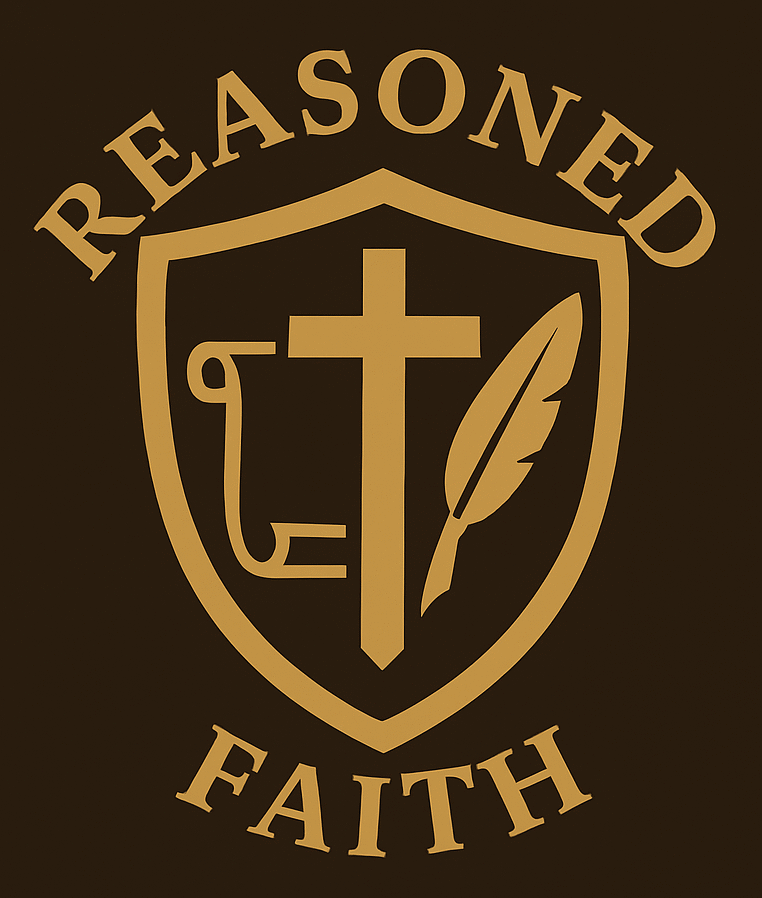
This article beautifully balances the Church’s teachings on immigration, highlighting the importance of both securing borders and welcoming those in need. It’s a thoughtful reminder that while nations must act responsibly to protect their citizens, they must also remember their duty to show mercy and compassion, especially to those fleeing danger. The emphasis on integration over assimilation resonates deeply with me, as it highlights the value of cultural diversity in strengthening communities. What are your thoughts on how nations can better address the root causes of migration, like poverty and conflict, instead of just focusing on border enforcement?
Thank you—great point. Addressing root causes means investing in long-term stability: fair trade, ethical foreign aid, and peace-building efforts. Nations should support development that empowers people to stay and thrive in their own countries. But a major obstacle is how those funds are used—systemic corruption in many developing countries often blocks real progress. Without accountability, even well-meaning efforts get wasted or abused.
Thank you for this well-balanced and thoughtful exploration of the Catholic Church’s teaching on immigration and border control. As an evangelical Christian who deeply values both national sovereignty and the biblical call to compassion, I found your insights particularly resonant.
It’s encouraging to see the Church affirm that nations have the right—and indeed the duty—to secure their borders for the common good . At the same time, the emphasis on upholding the dignity of every human being, especially those fleeing dire circumstances, reflects the heart of Christ’s teachings.
This balanced approach prompts me to consider how we, as individuals and communities, can practically embody both justice and mercy in our daily lives. How can we support policies that protect our nation’s integrity while also extending grace and assistance to those in genuine need? Additionally, how might churches and faith-based organizations collaborate with governmental bodies to address the root causes of migration, such as poverty and violence, in the countries of origin?
I appreciate your commitment to navigating these complex issues with both conviction and compassion. May we all strive to reflect Christ’s love in our approach to such critical matters.
Thank you for such a sincere and thoughtful reflection. I’m encouraged by your desire to hold both justice and mercy together—that’s exactly the tension Scripture calls us to live in. Supporting policies rooted in both security and compassion starts with informed civic engagement and holding leaders accountable to moral principles, not just political wins. As for churches, their unique role is to act where governments often fall short: offering direct aid, advocating for dignity, and building partnerships that reach across borders. Collaboration with NGOs and missions that serve abroad can help address poverty and instability at the root. It’s a long road, but one we’re all called to walk—faithfully and together.